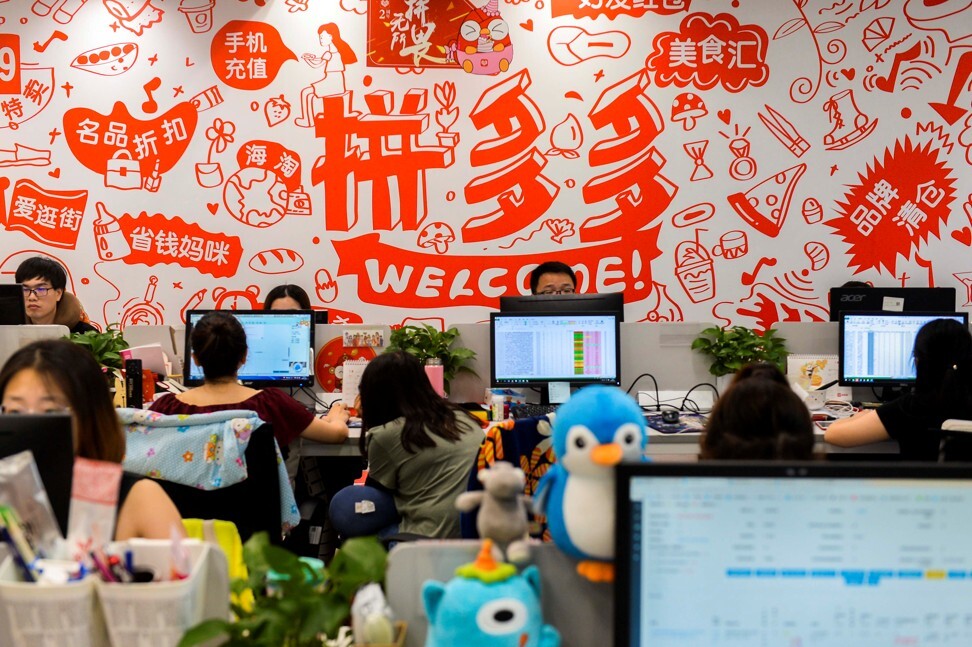
Inside China Tech: Huawei founder Ren Zhengfei’s biggest wish
- The leader of China’s largest technology company looks forward to gentler times outside the telecommunications equipment business
- As Huawei’s chief executive, he says his major contributions have been to help maintain the company’s strength during hard times

Hello, This is Bien Perez from the South China Morning Post’s Technology desk, with a wrap of our leading stories this week.
In April of 2016, Huawei Technologies founder Ren Zhengfei became an internet sensation in China after a photograph of him waiting in line for a taxi outside Shanghai’s Hongqiao International Airport went viral.
The nation’s social media users expressed their approval of the image, which showed the septuagenarian without any assistant or chauffeur waiting for him. They said it conveyed the down-to-earth nature of Ren, who founded an enterprise that developed into China’s biggest technology company and the world’s largest telecommunications equipment supplier.
That image has been reinforced by Ren, 75, as he continues to lead Huawei with the same self-effacing approach at a time when the company is caught in the middle of a protracted tech and trade war between China and the United States.
“I only play a symbolic role, like a clay idol in a temple,” Ren said in an interview with the Post. “Without it, the temple would look empty. But in truth, the idol doesn’t really do anything … Whether or not I’m at Huawei has no real impact.”

“It would be sublime if nobody noticed me in a cafe when I’m old, with a hat on, a walking stick in my hand and wrinkles all over my face,” he said. “I wish to see, with my own eyes, the splendour of my country.”
It is a simple wish, but one that has become out of reach for Ren since he broke years of silence to face head on Huawei’s biggest crisis in more than three decades.
The emergence of the reclusive Ren, who last spoke with foreign media in 2015, underscores the depth of the attacks on Huawei. That started with the arrest of his daughter, Huawei chief financial officer Meng Wanzhou, in Canada in December 18 at the behest of the US government. Meng remains under house arrest in Canada amid a hearing that will decide whether she will be extradited to the US, where she faces a bank fraud charge.
In May last year, the Trump administration added Huawei to the US trade blacklist, which restricts the company’s ability to buy hardware, software and services from American hi-tech suppliers.
Ren’s towering influence in facing those challenges has become apparent on the company’s internal online forum, Xinsheng Community. There, posts on Ren, such as transcripts of his dialogues with company executives about reforms and his personal takes on various topics, are always placed front and centre.
A Huawei employee, who declined to be identified but has worked in the company for more than 10 years, described Ren as “the definite leader, the spiritual leader in Huawei”.
As modest as usual, Ren disagreed with that description. “My major contributions have been to help maintain the company’s strength during hard times.”

China’s online delivery services are evolving
For millions of people around the world confined to their homes amid the coronavirus crisis, the lockdown and social distancing measures have forced more into online consumption.
In China, which has the largest food delivery services market in the world, worth over 603 billion yuan (US$85.4 billion) in 2019, it has not been a simple case of more demand and increased sales – the impact has been more nuanced.
Many Chinese consumers have opted for groceries over meals for fear of being infected, and popular platforms like Meituan Dianping and Alibaba’s Ele.me have had to innovate with “contactless deliveries” and “semi-finished products”. Meituan and Ele.me have a combined 90 per cent of the domestic market. Alibaba is the parent company of the Post.
Beyond the core of food delivery, Meituan and Ele.me have expanded into books and cosmetics as people diversify their consumption habits amid stay-at-home policies. In early April, Ele.me announced that consumers could buy Huawei smartphones via its delivery service, hot on the heels of Meituan offering to deliver beauty products from Sephora.
These two platforms are also seeing an increase in middle-aged and elderly customers. Many elderly people in China have used online marketplaces and delivery services for the first time during the outbreak.
“Now there is a change for the [service delivery] industry to educate and cultivate users, and to let people know these services exist and [they can also] experience the convenience [these bring],” said Yang Xu, a senior analyst at consultancy Analysys International. “But it remains to be seen whether these new users will be retained after the pandemic subsides.”

Pinduoduo invests US$7.1 billion in rural China e-commerce campaign
Social e-commerce giant Pinduoduo is investing at least 50 billion yuan (US$7.1 billion) over the next five years in online retail programmes in China’s rural areas, which would boost nationwide demand for agricultural products.
That initiative is expected to help Shanghai-based Pinduoduo, the country’s No 3 e-commerce services provider by gross merchandise volume, develop up to 1 million rural online shops on its platform, with each store targeted to generate more than 1 million yuan in annual revenue, the company said on Tuesday.
“PDD is very positive and optimistic about China’s agricultural modernisation and the online penetration of agricultural goods,” Pinduoduo co-founder Sun Qin said in an interview with reporter Yujie Xue on Wednesday. The company is listed on the Nasdaq Stock Market under the ticker symbol PDD.
Sun indicated that online penetration of agricultural goods in mainland China will reach 800 billion yuan within the next five years. Total online sales from farmers and co-operatives on Pinduoduo, China’s biggest e-commerce platform for agricultural goods, “will exceed 1.5 trillion yuan”, he said, without elaborating on timing and other details.
E-commerce in China’s rural areas and lower-tier cities has become more competitive over the past few years amid the slowdown in the country’s major cities like Beijing and Shanghai. Pinduoduo’s growth in rural e-commerce has intensified its rivalry with Alibaba and JD.com. Alibaba runs the online retail platforms Taobao Marketplace and Tmall.
And that is all for this week. Until next time.